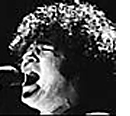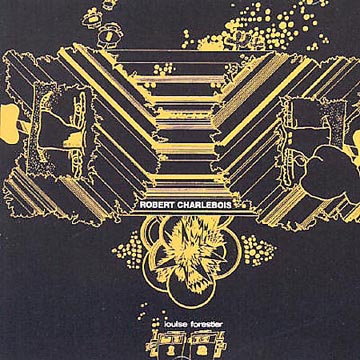Canadian Masters and their Works
Robert Charlebois – Lindbergh – 1968 
Article by Robert Thérien
 During the first few years of his carreer, Robert Charlebois was considered a traditionnal "chansonnier," a likely heir to Félix Leclerc. But the Beatles influence on his generation soon transformed his musical perceptions. In 1968, he took part in L'OSSTIDCHO, a provocative, unruly, theatrical extravaganza in which he proposed new songs, like “Lindberg,” that went to the top of the charts, a first for a former “chansonnier” in Québec. He went on a Canadian tour with Janis Joplin and was the opening act for Steppenwolf in Montreal, almost stealing the show.
During the first few years of his carreer, Robert Charlebois was considered a traditionnal "chansonnier," a likely heir to Félix Leclerc. But the Beatles influence on his generation soon transformed his musical perceptions. In 1968, he took part in L'OSSTIDCHO, a provocative, unruly, theatrical extravaganza in which he proposed new songs, like “Lindberg,” that went to the top of the charts, a first for a former “chansonnier” in Québec. He went on a Canadian tour with Janis Joplin and was the opening act for Steppenwolf in Montreal, almost stealing the show.
After a bumpy premiere at the Paris Olympia in 1970, he took the city by storm two years later and soon was considered the most promising newcomer. For the next five years, Charlebois explored several musical avenues and became one of the leaders of the cultural and sociological revolution that was taking place in Québec in the early ‘70s. Therefore, some of his fans were outraged when he turned to ballads and a clean-cut look, but his popularity in Europe grew to superstar status. In the ‘80s, Charlebois went through many more changes that brought back most of his followers. He even wrote a musical (Cartier) on the foundation of Canada. He was awarded lifetime achievement awards in Québec (ADISQ, 1993) and in France by the famous Académie française in 1996. In 2001, Charlebois gathered a team of young collaborators and turned out an album that had critics and public alike listening once again to a creative artist who has always refused to be labelled or boxed in.

Crude poetry, corrosive slang (joual), spaced out musical textures, provocation, the underground event called L’Osstidcho, and its emblematic hit “Lindberg,” exploded on the Montreal rock scene in 1968 and forced other Quebec pop artists to reinvent themselves or perish. With Refus Global, the revolutionary movement of the 1940s, Quebec yielded to modernity; with L’Osstidcho it slipped into counterculture. Invented spontaneously by comedian Paul Buissonneau, the word “Osstidcho” crystallized perfectly what is “joual”: neologism, Anglicism, curse word. Charlebois is the embodiment of this wild counterculture, a 1960s reincarnation of dadaism (French radical movement of the 1910s). Claude Péloquin’s eerie poem “Lindberg” set to music by Charlebois took on the allure of a manifest of the new “joual” art form. A provocative slogan also floated in the air: “Tonight, we will frighten people”, a leitmotiv which Charlebois repeated endlessly to his collaborators to put them in the “right frame of mind.”
Jean-Pierre Sévigny
Links
http://www.robertcharlebois.com
http://www.retrojeunesse60.com/robert.charlebois.html